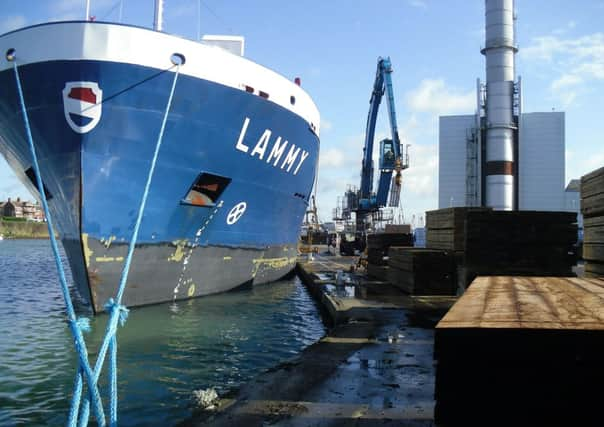First shipments of pulp present challenge for port


The shipment arrived in Shoreham Harbour at the beginning of February, during a spell of particularly wet weather.
It is vital the cargo is kept dry, so, with very few ‘windows’ of dry weather to work within, it was essential the cargo was discharged quickly and efficiently.
Advertisement
Hide AdAdvertisement
Hide AdCommercial director Alan Motterham said: “The team’s expertise ensured the cargo was successfully dispatched whilst working around some unpredictable weather.”
The operations division used specialist lifting equipment to unload the pulp, with hooks for discharging from the ship and bale clamps fitted to forklifts, for handling the pulp once it was on the quay.
The new shipments of pulp have added to Shoreham Port’s ever-growing cargo base of sand, aggregate, steel, ash, wood chip, timber and many more.
Mr Motterham, who manages the discharging of ships’ cargoes, ships agency, haulage, cargo storage and movements on the terminals, added: “We are pleased to have been awarded this contract.
Advertisement
Hide AdAdvertisement
Hide Ad“It adds to our portfolio of cargo handled by our highly-skilled stevedoring team.
“We look forward to seeing other new cargoes enter the port throughout 2014.”
Pulp comes from softwood trees such as spruce, pine, fir, larch and hemlock, and hardwoods such as eucalyptus, aspen and birch.
It is most commonly used as a raw material in paper making, but is also used in textiles, food, pharmaceutical and many other industries.
Advertisement
Hide AdAdvertisement
Hide AdEvery six to eight weeks, 1,000 tonnes of pulp will be delivered into Shoreham and the port’s operation division will be responsible for ensuring the safe unloading of the cargo.
In Sweden, around 68 per cent of available land is forested and the country is Europe’s largest exporter of pulp to the paper industry. With the decline in markets for traditional papers, companies in Sweden have begun producing pulp for textiles.